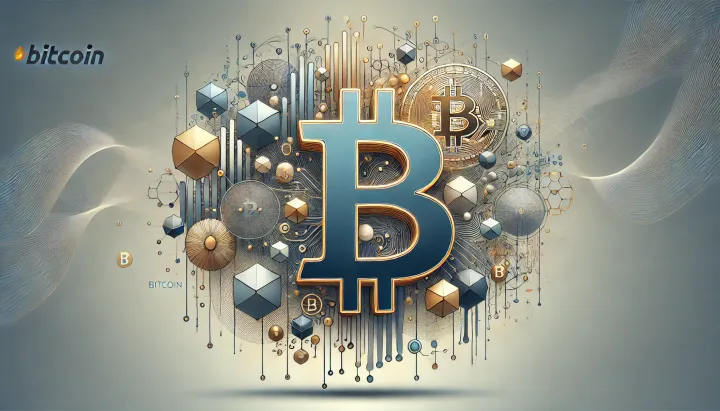Monetary Reset and Bitcoin Stability
On March 28, 2025, The Bitcoin Way podcast with Lawrence Lepard examined how unsustainable debt, inflation, and distorted fiscal policies necessitate a monetary reset. Lepard argues that Bitcoin’s fixed supply offers a stable alternative to debased fiat money.

- My 'briefing notes' summarize the content of podcast episodes; they do not reflect my own views.
- They contain (1) a summary of podcast content, (2) potential information gaps, and (3) some speculative views on wider Bitcoin implications.
- Pay attention to broadcast dates (I often summarize older episodes)
- Some episodes I summarize may be sponsored: don't trust, verify, if the information you are looking for is to be used for decision-making.
Summary
On March 28, 2025, The Bitcoin Way podcast with Lawrence Lepard examined how unsustainable debt, inflation, and distorted fiscal policies necessitate a monetary reset. Lepard argues that Bitcoin’s fixed supply offers a stable alternative to debased fiat money. The discussion underscores urgent policy reforms to restore economic efficiency and fairness.
Take-Home Messages
- Monetary Reset Imperative: Excessive debt and debasable fiat demand urgent reform.
- Inflation Dynamics: Rising inflation undermines purchasing power and economic stability.
- Bitcoin’s Fixed Supply: Bitcoin provides a non-debasable store of value amid fiscal imbalances.
- Policy Reform Necessity: Correcting interest rate and credit expansion distortions is critical.
- Public Financial Literacy: Enhanced education on sound money is essential for informed decision-making.
Overview
Lawrence Lepard opens the discussion by diagnosing the systemic issues in the current monetary framework, where fiat money’s debasement distorts economic measurements and erodes trust. He draws on historical examples of hyperinflation and unsustainable debt crises to illustrate that the problems are not new but have grown in magnitude.
He critiques the traditional focus on nominal growth and emphasizes that genuine progress should be measured by productivity and efficiency. According to Lepard, distorted interest rates and excessive credit expansion have led to unsustainable debt-to-GDP ratios, setting the stage for a necessary monetary reset.
Lepard introduces the concept of the “big print,” a scenario where the mounting debt forces an abrupt recalibration of the monetary system. He explains that this reset, though likely painful, is mathematically inevitable given current fiscal imbalances.
The conversation highlights Bitcoin as a potential remedy due to its fixed supply and resistance to inflation. Lepard contrasts Bitcoin with traditional assets like gold, arguing that despite its volatility, Bitcoin is a more predictable and secure alternative in a world of fiscal uncertainty.
Stakeholder Perspectives
- Policymakers: Concerned with balancing necessary monetary reforms with political feasibility.
- Financial Regulators: Focused on mitigating systemic risks from unsustainable debt and distorted interest rates.
- Institutional Investors: Interested in strategies that preserve asset value amidst fiscal instability.
- Everyday Citizens: Vulnerable to inflation and economic disruption, seeking reliable stores of value.
- Economic Educators: Advocate for improved public literacy to support informed monetary policy debates.
Implications and Future Outlook
The podcast implies that without urgent fiscal reforms, the current trajectory of rising debt and inflation will force an inevitable monetary reset. Stakeholders must prepare for potential volatility and structural shifts that could disrupt established financial systems. Policymakers are urged to consider reforms that realign interest rates and credit practices with genuine market dynamics.
Lepard’s insights suggest that Bitcoin, with its fixed supply, might offer a stabilizing countermeasure to debasable fiat. This potential shift towards sound money could realign economic incentives and improve capital allocation. However, the transition is likely to be marked by social and political challenges that require proactive measures.
In the long term, a successful monetary reset could lead to a more efficient and equitable economic system. Improving public financial literacy and aligning policy with the realities of debt and inflation are essential steps. The discussion calls for immediate attention to these issues to mitigate broader societal risks.
Information Gaps
- How can the timing of a monetary reset be accurately predicted given current debt levels? This question is critical as it would help policymakers and investors prepare for an impending fiscal shift by identifying reliable early indicators.
- What policy adjustments can effectively mitigate runaway inflation while transitioning to a sound money framework? Addressing this is vital to ensure that the transition does not exacerbate economic instability and protects purchasing power.
- What measures can reduce the debt-to-GDP ratio without stifling economic productivity? This inquiry targets a structural challenge, aiming to balance fiscal responsibility with growth and long-term economic health.
- How can interest rate policies be reformed to reflect true market dynamics? Correcting these distortions is essential for optimal capital allocation and to prevent further systemic imbalances.
- What educational initiatives can improve public understanding of sound money principles? Enhancing financial literacy is crucial for building widespread support for necessary reforms and ensuring informed decision-making.
Broader Implications for Bitcoin
Shift in Global Monetary Policy
A successful monetary reset could compel central banks worldwide to abandon outdated intervention models and embrace policies that better reflect real economic fundamentals. This paradigm shift might foster a transition from reactive measures to proactive fiscal strategies that prioritize long-term stability. In turn, global monetary frameworks could evolve to support more sustainable and resilient economic growth.
Realignment of Asset Valuation
As confidence in fiat money erodes, investors may increasingly pivot toward assets with intrinsic scarcity, such as Bitcoin. This realignment could upend traditional valuation models, leading to a recalibration of risk and reward across asset classes. The resulting shift in capital allocation may drive innovation and disrupt established financial markets.
Catalyst for Regulatory Overhaul
The pressures of a monetary reset are likely to expose regulatory gaps in managing excessive debt and credit expansion. Authorities may be forced to overhaul existing frameworks to mitigate systemic risks while facilitating a smoother transition to a sound money standard. Such regulatory reforms could reshape the landscape of financial oversight and market integrity.
Social and Political Repercussions
A forced reset in the monetary system may precipitate significant social upheaval, particularly affecting those most vulnerable to inflation and debt shocks. Political institutions could face intensified pressure to enact rapid reforms, potentially altering power dynamics and public trust. These shifts might redefine the interface between economic policy and societal well-being.
Innovation in Financial Infrastructure
The challenges posed by a monetary reset could serve as a catalyst for breakthroughs in financial technology and decentralized systems. Market participants may accelerate the development of robust infrastructures that align with a sound money framework, enhancing transparency and efficiency. This innovation could pave the way for new payment systems and financial services that better serve a rapidly evolving global economy.



Comments ()